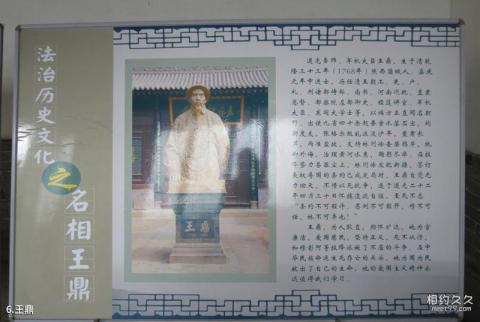
Introduction to Wang Ding: Ding, whose name is Dingjiu and whose name is Shengya. He was born in Pucheng County, Shaanxi Province in the 33rd year of Qianlong's reign in the Qing Dynasty (AD 1768). He came from a humble background and his family was poor, but he was diligent and studious. He once borrowed the ever-burning lantern from the Chenghuang Temple to study for a long time. He is upright and broad-minded, advocating national integrity. During the Jiaqing period, he was a Jinshi, and successively served as Minister of Rites, Husbandry, Punishment, Industry, and Officials, Yin of Shuntian Prefecture, Governor of Henan Province, Governor of Zhili, Censor of Zuodu of the Duchayuan, Jingyan Lecturer, Minister of Military Aircraft, and Bachelor of Dongge University. , famous for his uprightness and integrity, both in government and in public. He was sent as an envoy to nine provinces and brought to light more than 40 important cases. He settled in Xinjiang, quelled Zhang Geer's rebellion, purified the salt administration of Changlu and Lianghuai, supported Lin Zexu in banning opium, resisted foreign aggression, and managed river works. He devoted his whole life. With the surrender forces raging, Lin Zexu was sent to Xinjiang, and it was a foregone conclusion to sign a treaty that would humiliate the country. He felt that he was powerless to fight back, and he did not hesitate to fight with his life. On April 30, the 22nd year of Daoguang's reign, he cherished the last words: "The treaty cannot be accepted lightly, evil will be done." The rules should not be opened lightly, Mu should not be allowed to leave, and Lin should not be abandoned!" He committed suicide by hanging himself.
